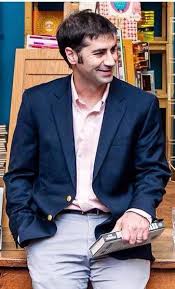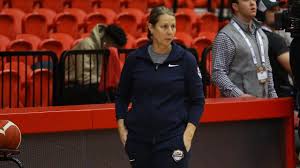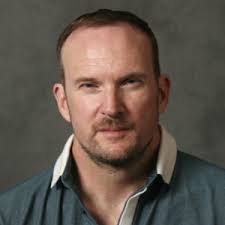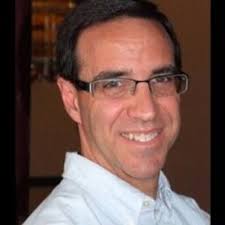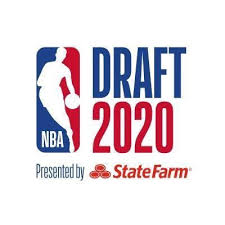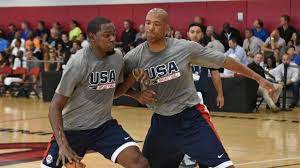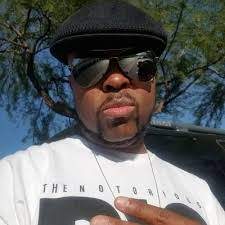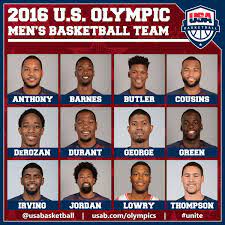The NBA Finals date back to 1947 (when they were known as the Basketball Association of America Finals) and the very 1st NCAA tourney was held in 1939. Olympic basketball competition is even older: it debuted as a demonstration event in 1904 and the men’s version became a medal sport in 1936, with the women finally getting their chance to go for the gold in 1976. The United States has dominated Olympic basketball competition from the start: the men have won 15 gold medals in the 18 tournaments they have participated in during the past 84 years, while the women have won 8 gold medals in the 10 tournaments in which they have competed during the past 44 years. Those of you who were looking forward to the 2020 Olympics opening ceremonies in Tokyo on July 24, 2020 will have to wait an extra 364 days, as the coronavirus caused a postponement until July 23, 2021. Due to the absence of college basketball since mid-March, HoopsHD’s Jon Teitel decided to fill the void by trying to interview as many prior Olympic players/coaches as possible so that you have something to read this summer while not watching the Summer Games. We continue our coverage by chatting with ESPN women’s basketball writer Mechelle Voepel about Sue Bird winning 3 WNBA titles and 4 gold medals. Today marks the 16th anniversary of Sue scoring 3 PTS in team USA’s 102-72 win over Greece in Athens at the 2004 Olympic quarterfinals.
Sue was a WBCA High School All-American and won a national championship at Christ the King High School: what made her choose UConn? She has talked a lot about how it was just the right fit for her. It was relatively close to home and the Huskies had already won a title so she saw herself as part of building something. She felt that Coach Geno Auriemma challenged her during the recruiting process and said that she could become 1 of his greatest players: it was down to earth and matched her personality.
In the 2001 Big East tourney title game she made a half-court shot at the end of the 1st half and a coast-to-coast drive for the game-winning jumper at the buzzer in a 2-PT win over Notre Dame: why was this game more than just another fantastic finish? There were a lot of things that all came together. They were considered the top-2 teams in the nation and had a conference rivalry throughout the season. There was a lot of attention/drama and the extra drama of her teammate Shea Ralph tearing her ACL for the 2nd time after being named Final 4 MOP the previous spring. 1 thing that has been consistent throughout Sue’s career is her ability to rise to the occasion at the biggest moments. People think of 2 games that stand out: this game (due to her 2 big shots at crucial times) and the 2018 WNBA semifinal Game 5 that she basically won by herself after putting the team on her back and scoring some huge baskets.
She was a 2-time All-American/2-time NCAA champ/2002 national POY: what did it mean to her to receive such outstanding honors? It always feels good to be individually recognized but as a PG she really measures herself by how well the team does. As great as that 2001 Big East title game was, what she remembers is that Notre Dame ended up winning the NCAA title. It remains her mindset today and I have never heard her talk about winning awards out loud because she only cares about what she did for her team.
She remains the Huskies’ all-time leader with 45.9 3P%/89.2 FT%: what is her secret for being a great shooter, and do you think that anyone will ever break her records? The key is that she is such a fundamentally sound player and does not take bad shots. She is not looking to score a certain amount of PTS: she is looking for who has the best percentage shot. Every record will be broken at some point but it would have to be someone with the same level of preparation/discipline. FT shooting is the same: get in your routine and stay mentally focused with your execution.
In the 2010 playoffs for Seattle she scored 16 PTS including the game-winning 3-PT shot with 2.8 seconds left in the decisive Game 2 of the Western Conference Finals to beat defending-champ Phoenix after erasing a 19-PT deficit, and in Game 1 of the Finals she scored 14 PTS including the game-winning jumper with 2.6 seconds left to beat Atlanta: what makes her such a clutch player? She has the ability to understand what the moment is: not everyone does and many people get overwhelmed by it. She wants to be the person to come through and is hard on herself when she does not. That 2010 Phoenix game is another “Sue Bird Game” where she beat her good friend Diana Taurasi by digging deep.
She is a 3-time WNBA champion (2004/2010/2018) and 1 of 4 players to win multiple NCAA titles/WNBA titles/Olympic gold medals (along with Swin Cash/Maya Moore/Diana Taurasi): what is her secret for winning championships? The ability to help everyone on the team do what is best for the team. She tells a story that dates back to her sophomore year at UConn. Geno pulled her aside and said that everything that goes wrong is her fault because she is the PG. You cannot say that to a lot of players but Sue understood that she was responsible for everyone and she was okay with that. All of her teammates can depend on her, which is really freeing for other players to know that she is their safety net and will bring the team together. Some teams win titles without great chemistry but Sue makes that chemistry happen.
Her 2831 career AST is the most in WNBA history and in 2011 she was named 1 of the 15 greatest players in WNBA history: where do you think that she ranks among the greatest PGs in women’s basketball history? I think that she is the great PG in women’s basketball for a few reasons. Her longevity is amazing, as is her ability to win championships at every single level both in the US and overseas. She is a great athlete and can put herself in the position where she needs to be all of the time. I have never covered anyone who is better.
She sat out the entire 2013/2019 seasons while recovering from surgery: how has she been able to accomplish so much despite having 6 left knee surgeries? She was very quick as a young player, which some people do not realize, but as you get older your mind has to do more of the work as your body ages. She has used the mental edge to her advantage but 2013 was a real crossroads in her career. She realized that she had to get into the best shape of her life in terms of diet/exercise…and she did. As your car gets older you need to take care of it to squeeze every last mile out of it, which is similar to what great athletes do.
She is a 4-time Olympic gold medalist for team USA (2004/2008/2012/2016): what does it mean to her to represent her country, and do you think that we will see her win gold medal #5 next summer in Tokyo? The US national team has been able to maintain a fierce loyalty among its players for decades. Teresa Edwards was a great PG who passed the torch down to Dawn Staley, who then passed it along to Sue. They all believe that representing their country is so important. What is hard to predict about 2021 is that she will turn 40 this October and it is hard to say if she will feel okay physically…but if there is anyone who can do it then she is the 1. When you are THIS close to #5, she would cherish it as a crowning achievement.
Her girlfriend is Olympic/World Cup gold medalist Megan Rapinoe: what kind of stature do they hold within the LGBTQ community, and who is the best athlete in the relationship?! They are rock stars: there is no doubt about that! Sue has been out to her friends/family for a long time but did not come out publicly until 2017. Megan and Sue have had positive impacts on each other. I think they have a friendly competition but they are both great athletes in their own respects. I might lean toward Sue since I cover basketball but they are both super-high-level athletes. They are inspirational to the community as 2 well-loved athletes who seem so happy together.




